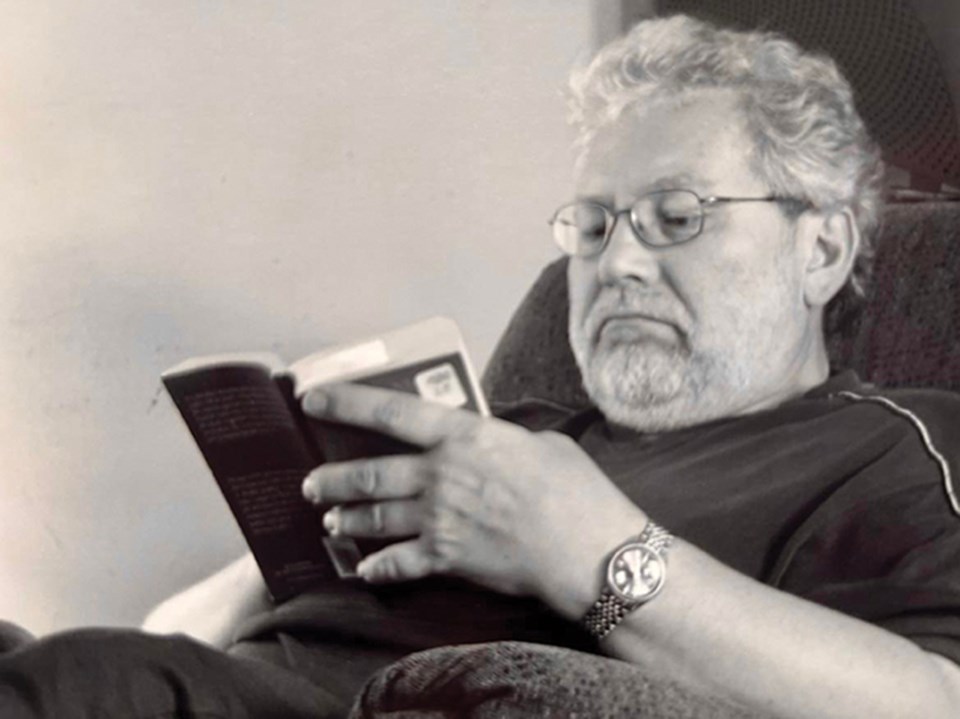My Dad wouldn’t give me the car keys.
I was sixteen years old, with a freshly earned N-level driver’s license, and I was heading down to 7-11 to meet some friends for slurpees. I’d been driving for a couple of months already, zipping around my hometown from one friend’s house to the next, and my parents had been granting me access to the car with no questions asked. But suddenly that had changed, and my stubborn father didn’t have a reasonable explanation for why. All he would say was, “No,” causing me to throw a histrionic kitchen tantrum — he was being so belligerent! My Dad was a control freak! What had I done to deserve this treatment?
It wasn’t until a couple of years later that my Mom confided in me what had happened: while I was out of town, a trio of teenagers had been killed in a T-bone car crash with an 18-wheeler only five minutes from our house. For nights, my Dad had laid awake, ruminating, disturbed by the deaths of these boys. They were the same age as me when they were killed.
My Dad wasn’t the type to vocalize his fears, but he was one to act on them — hence those withheld car keys. Though he couldn’t articulate it to my face, and even though I wouldn’t have cared if he had, he was trying to express love — the type of love that requires you to be the Bad Guy sometimes. It was, to quote author Miriam Toews, a complicated kindness — something I wouldn’t fully appreciate until I became a father 20 years later.
I’ve always loved the Biblical story of the prodigal son, partially because it has so many hidden meanings and layers beyond the surface-level narrative. I keep discovering new elements to that story of a son’s rebellion and return, nuances that have only become meaningful now that I have my own kids. I always empathized with the petulant rebel, understood his impulse to thumb his nose at his father and forge his own path. And I also empathized with returning defeated to the family home with your tail between your legs after failing to properly launch multiple times. My Dad always provided my home base, whether I was returning jet-lagged and haggard from Thailand, bursting with inspiration after my first newspaper internship in the Yukon, or raving distressed in the midst of a manic episode I suffered in the Kootenays.
Some people don’t have that, and I’ll be eternally grateful that I do.
It was during my hardest years that I came to understand how special my father is. When I was struggling with my mental health recovery, the first thing he did was take me down into the garage to build an easel. He’d learned that I had been painting as a mental health measure, and thought we could construct one out of scrap wood. I was impatient and ungrateful, figuring it would just be easier to buy one for twenty bucks at a local art store. But he put half an hour of his time into finding the right three pieces of wood, sawing them to the right length, then screwing them together and arranging everything into a solid tripod with a ledge for the canvas. It was solid, sturdy, the best easel I’ve ever had, and it’s already lasted nearly five years. Everyone else was convinced that what I needed to heal was to talk, but my Dad recognized immediately that what I really needed was to paint. I wish I could’ve seen that in the moment, as I complained in my slippers about how cold it was in the garage.
Fatherly love is kind of like having a giant pile of time bombs that you lob, one after the other, at your kids. Those bombs are full of fatherly advice, concern, admonishment, discipline. Sometimes, the kids dodge the bombs, while others they kick away or don’t notice them at all. You have no idea which bombs will actually hit them with your love shrapnel, and which ones will leave them unscathed. Will they appreciate how you taught them table manners? That you took them to the dentist? That you made them go to bed on time?
When I look at my baby son, and change his diaper, I understand how my father lived for me in ways I never could otherwise. You pour all your ambitions and hope into a tiny human, you spend years trying to prepare them for survival, and it’s not even thanks you’re looking for. The success of your child is the reward itself, the whole point of everything. I like to believe that my Dad gossips about his wacky wild-traveling son, with all his irresponsible ways, proudly listing off all the places I’ve been, the interesting jobs I’ve had, all the drama I’ve created over the years.
And I hope he feels glad that I’m home again.

.JPG;w=80;h=120;mode=crop)
